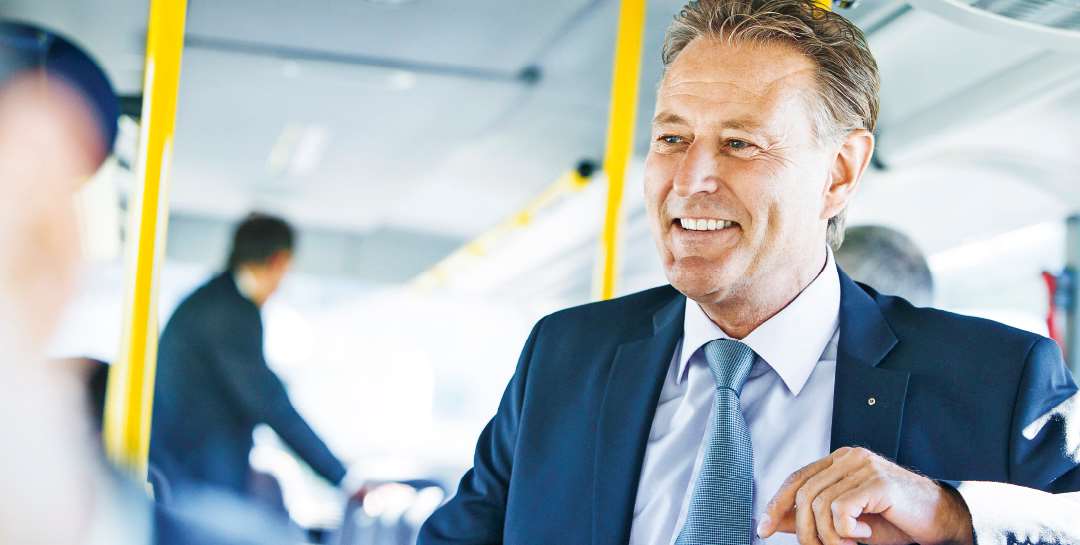We are simplifying mobility and in doing so making a contribution towards quality of life.
Daniel Landolf
Head of PostBus, Member of Executive Management

Interview
On the road to becoming an integrated mobility provider
PostBus today is already an important and indeed by now indispensable mobility provider. In this interview, Head of PostBus Daniel Landolf explains how the bus company plans to meet the challenges of the future.
PostBus wants to transform itself from a bus company into an integrated mobility provider. Where does your company stand today?
We have expanded our services along the mobility chain and are working continually to further professionalize and pool our technical expertise. System services and combined mobility are developing rapidly all over the world. With our SmartShuttle and Integrated System Architecture projects, we are among the front runners in this area, and are taking on a pioneering role – far beyond our national borders.
Competition is growing – how does PostBus meet this challenge?
There has indeed been no decrease in the pressure on costs from customers. We want to tackle this challenge proactively. Any improvement in competitiveness requires both an increase in revenues and a further increase in productivity. However, we will also not be able to avoid making targeted savings.
What do you do for your passengers?
We do a great deal to ensure that the customer of tomorrow will be satisfied with us, and we have a range of pilot projects aimed at achieving just that: electronic ticketing, tailor-made mobility sharing services such as PubliRide, large bike sharing networks such as PubliBike, self-driving Postbuses, our so-called SmartShuttles, and so on. Our future passengers are the digital natives, and their access to the real world is through their smartphones. A service provider with no presence in the digital marketplace does not exist in their world. This is something we are very conscious of.
What do the passengers of the future look like?
The passengers of the future are used to having access to a suitable means of transport anytime and anywhere. They plan journeys within seconds by selecting whichever app gives them direct and reliable access to the biggest choice of means of transport. Ticket machines are a thing of the past for them. Each means of transport becomes a digital booking object, just as it is for us with today’s hotel booking platforms. We are using the term “means of transport” consciously here, rather than just talking about buses, trams or trains, because the boundaries between public transport and private transport have become blurred. In the future, I might cover part of my journey with a PubliBike bicycle or a car from a car sharing provider. Or as a passenger in a private car with a free seat. The app shows me the best way to get where I’m going.
How do you see PostBus’s role in future?
PostBus is the biggest bus company in Switzerland and intends to continue to play an important role in the mobility market. Mobility is our core business. With the projects I mentioned earlier, we are moving in the right direction along with our partners. We have ambitious goals, but I am convinced that we will achieve them.
Mobility Lab: Innovation made by PostBus
A self-driving Postbus, a car sharing platform and a CIBO ticket system: all ideas that originated in the Mobility Lab think tank. This is the platform for forward-looking mobility solutions run jointly by PostBus, the Canton of Valais, ETH Lausanne and HES-SO Valais-Wallis, with specialists working on alternatives to the private car, studies on the use of bike and car sharing or the development of innovative services such as digital ticket solutions. In 2016, the Mobility Lab tested CIBO with volunteers from Sion, who used the smartphone ticket system until the end of the year and participated in surveys, providing valuable input for the improvement of CIBO.